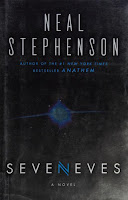Lilac Girls by Martha Hall Kelly
My thoughts on this one won't be popular with the many who loved it because I found it had more weaknesses than strengths. It covers some intense subject matter and seems to be very well researched, but in the end the writing simply wasn't strong enough to tell the story well.
In alternating sections three characters share the events of 1939 to 1959 as they experienced them:
Caroline, 37, does volunteer work for the French Embassy in New York City, assisting the many people trying to either get out of France or get home to France with war looking more likely every day. Her work and her involvement in the organizing and shipping of care boxes to children displaced in Europe's chaos lends some gravitas to what otherwise seems like an often frivolous character.
Kasia, 16, and two friends are outside when low flying planes approach and she watches in horror as the first bombs are dropped on their small Polish town. Caught helping the resistance movement, she, along with her mother and sister, will be sent to Ravensbruck, a concentration camp for women. There Kasia and her sister will be among a group of women subjected to horrific Nazi medical experimentation.
Herta, a young German doctor frustrated by the lack of jobs open to females in civilian practice, is excited when she hears of an opportunity to work at a women's 're-eduction' camp. On arrival at Ravensbruck, she is at first unsettled by what she sees being done to prisoners, but then comes to see it as necessary for the protection of German racial purity.
Is anybody else getting tired of the alternating viewpoints and timelines device? It seems to be the go-to format in fiction now, but for me it's wearing thin. It works here to a point, but only Kasia's comes to any sort of conclusion, with the other two just fading out.
A number of things seemed off. The title has little to do with the story and the cover art is a little misleading. It can't represent the three main characters, who would never be found arm in arm like chums. Some of the dialogue, especially Caroline's, felt shallow and tone-deaf. Inconsistencies in her character show her being kind and compassionate with some people, then inexplicably rude with others. Her story relies heavily on a romance that never ends up going anywhere. Kasia's coldness toward her daughter and husband don't come across as reasonable, and there's no explanation of Herta's quick change of attitude about the brutality in the camp.
The three women are based on actual people and though the sections dealing with their true experiences are riveting, it falls apart in the purely fictional parts of the story. I want to admire Caroline and Kasia for the heroes they are, but the attitides and dialogue given to them make them unlikeable, which to me defeats the purpose and prevents any emotional connection with them.
This story had a lot of potential, with solid subject matter and real people to build it around, but I think the writing let it down.









